
Politics
17:02, 16-Nov-2017
Splits remain as British lawmakers debate EU exit
CGTN
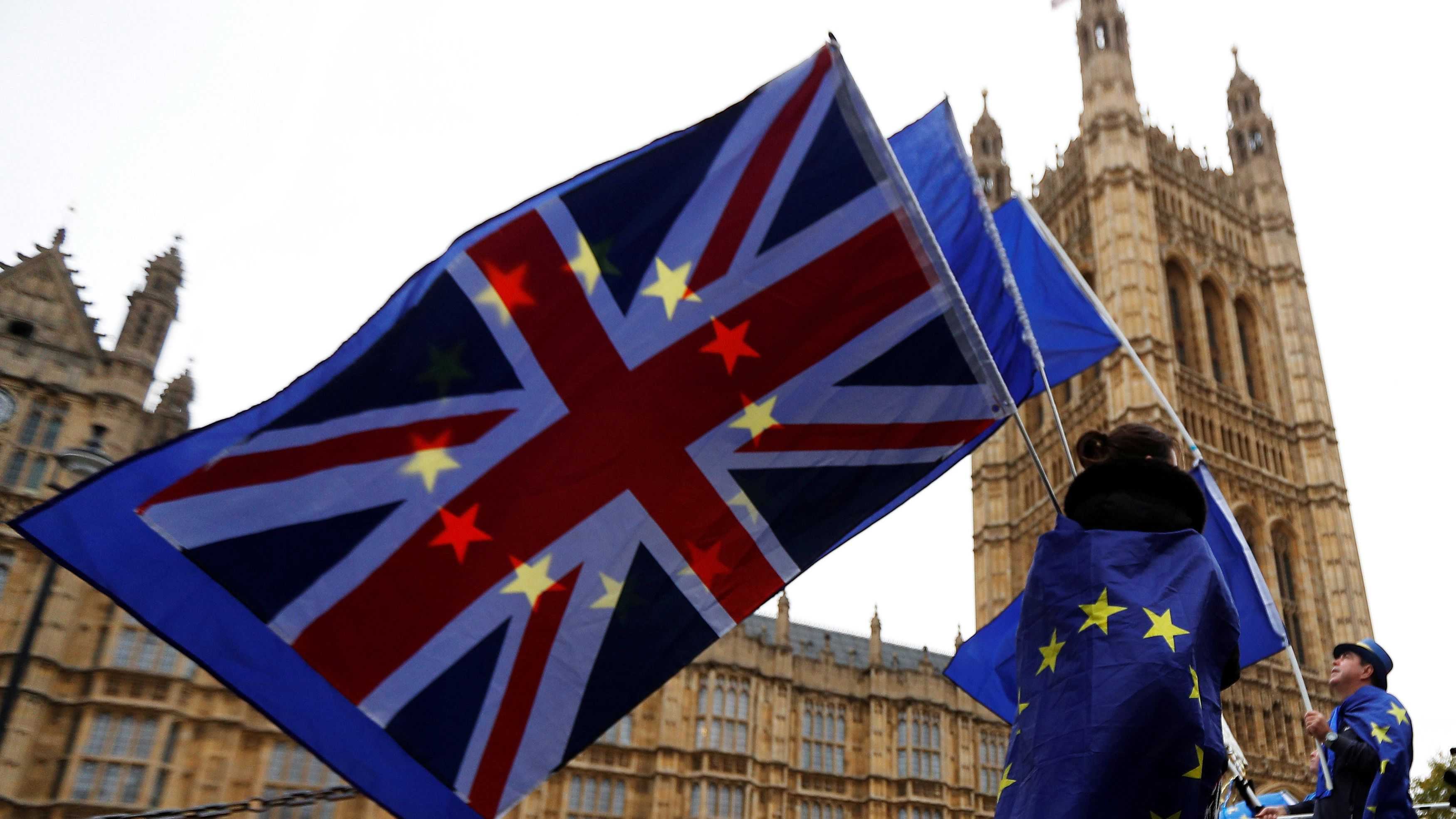
British MPs debated the EU Withdrawal Bill for the second day of eight on Wednesday, with the government in Westminster narrowly prevailing in five separate votes despite minor rebellions.
The bill aims to smooth transition after Brexit by copying all existing EU legislation into domestic UK law, and would also allow the use of controversial “Henry VIII” powers – these allow ministers to make amendments to laws without parliamentary scrutiny.
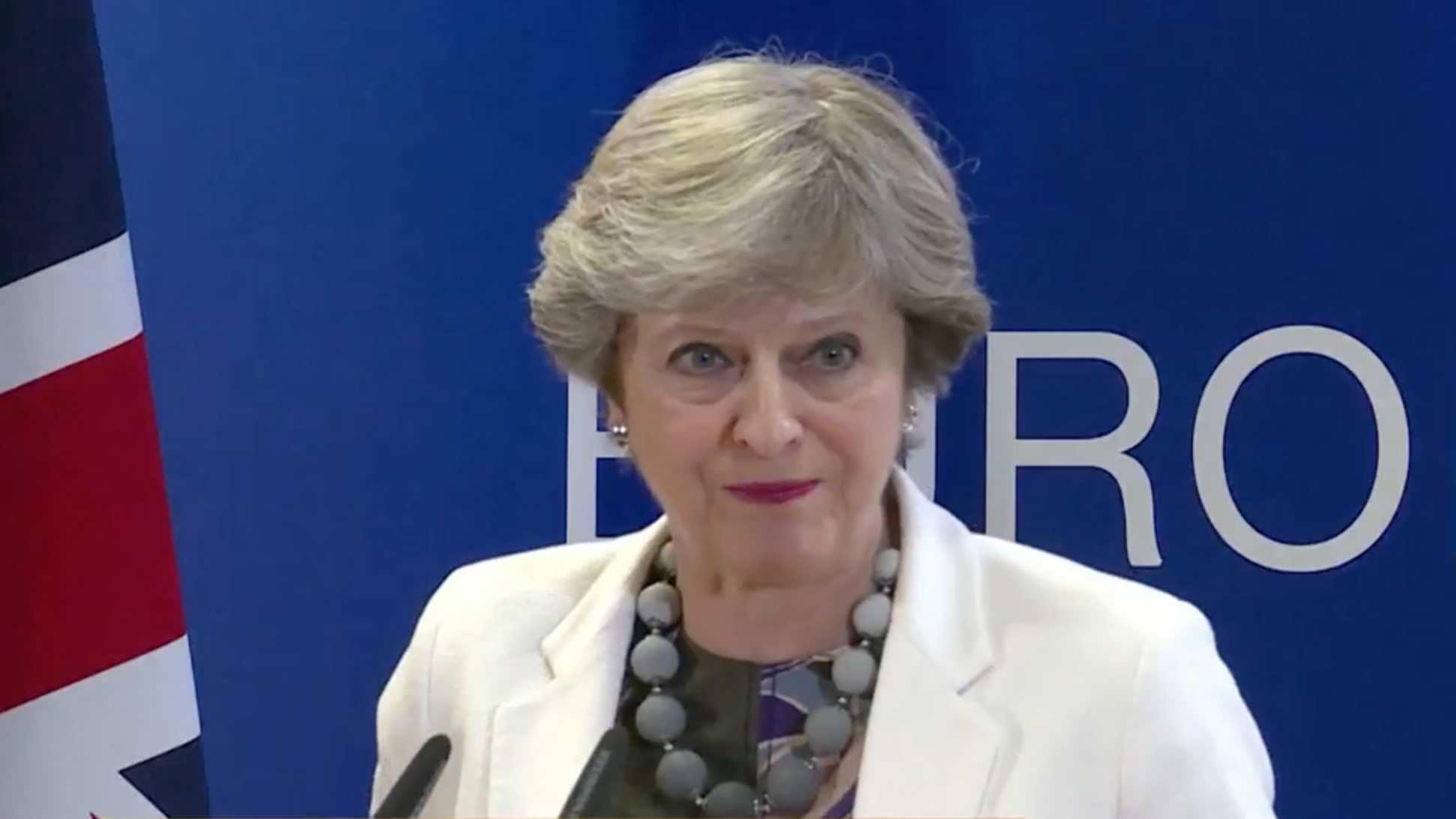
Behind the debates is the fear of pro-Brexit lawmakers that Britain may never leave the EU, and of pro-EU politicians who are worried Britain might crash out of the EU without a deal.
A debate next month on when Britain should leave, and whether a specific time should be set, is expected to test Prime Minister Theresa May’s ability to hold her Conservative Party together.
Splits and suspicions
Divisions within the Conservatives over the European Union have been rife for decades, but in the wake of the Brexit vote, the factions have become clearer.
A row was stoked this week by the Daily Telegraph newspaper, which ran a front page featuring images of 15 Conservatives under the headline “Brexit Mutineers.”
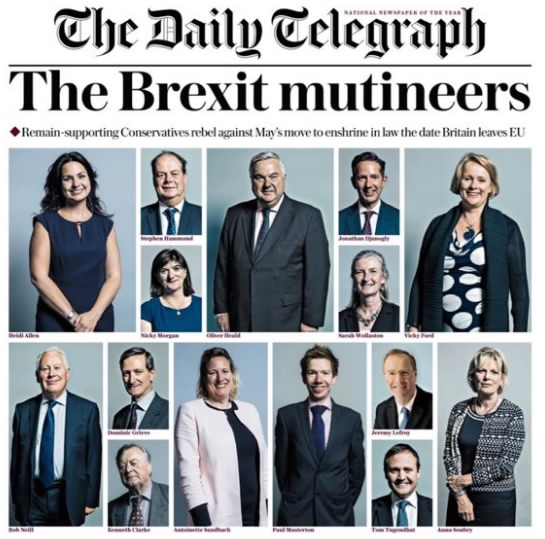
The front page of Britain's Daily Telegraph newspaper sparked controversy. /Reuters Photo
The front page of Britain's Daily Telegraph newspaper sparked controversy. /Reuters Photo
Several of those pictured reported receiving threatening messages in the wake of the headline.
May has tried to ease tensions by offering lawmakers some concessions on the bill, but has yet to convince all her MPs, many of whom have said they will not vote with the government on at least one of the debates, namely on “exit day.”
“Exit day” has become the focus for most in parliament with some lawmakers saying pro-Brexit politicians want a firm date on the bill – 11:00 p.m. on March 29, 2019 – to limit flexibility in talks with the EU that are deadlocked largely over money.
On Monday, Brexit Secretary David Davis announced that legislation will be introduced allowing MPs to have a “take it or leave it” vote on the final deal negotiated.
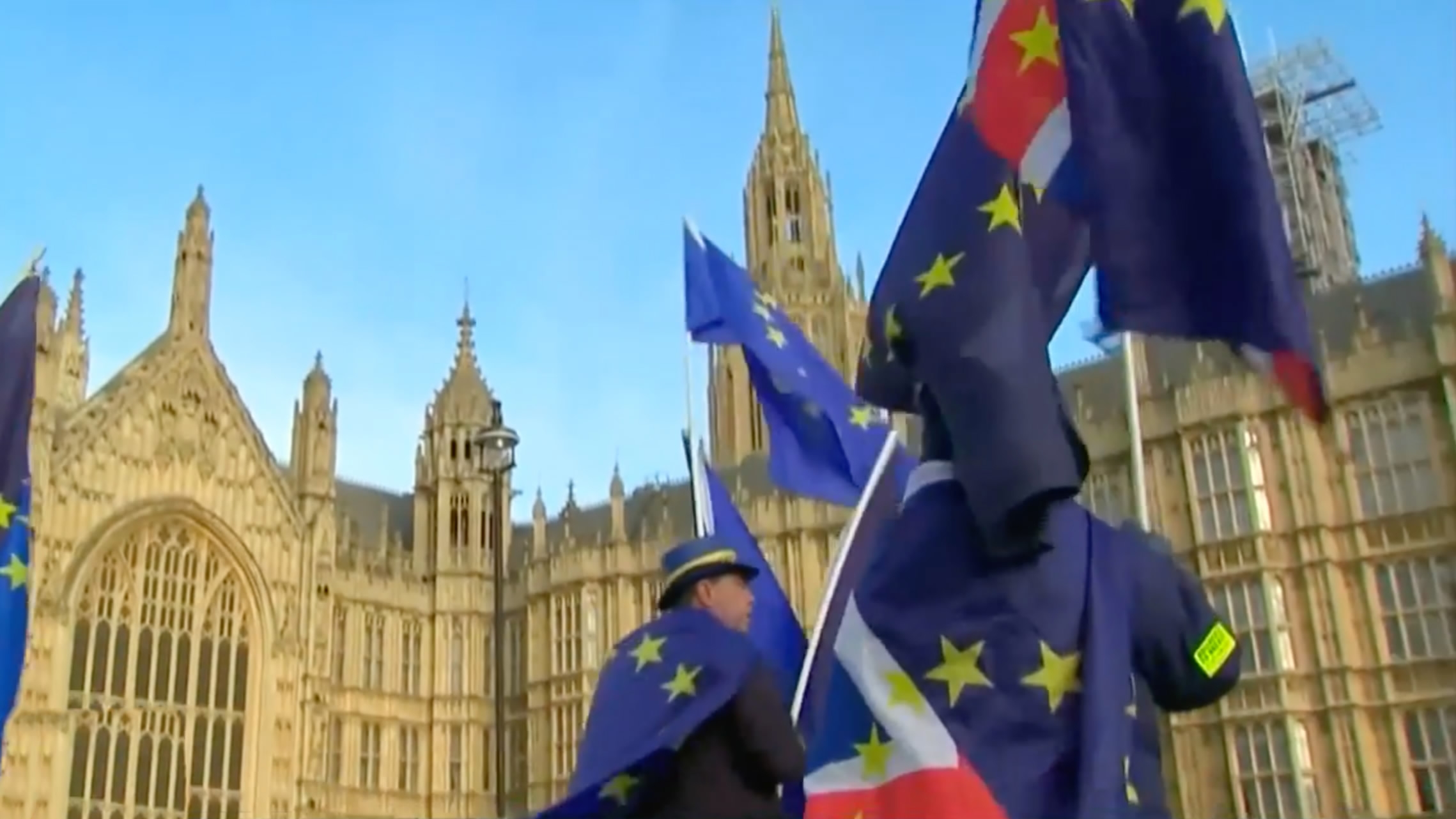
The proposed vote would not allow lawmakers to overturn Brexit, just to accept the deal or leave the bloc without agreement.
Where is Britain on Brexit?
The Brexit negotiations are taking place both in the British parliament and with EU representatives in Brussels.
Talks with the EU are focused on three areas: how much the UK must pay in a so-called “divorce bill”; how to deal with the land border between Northern Ireland (part of the UK) and the Republic of Ireland (a sovereign country); the status of EU citizens living in the UK, and UK citizens in the EU.
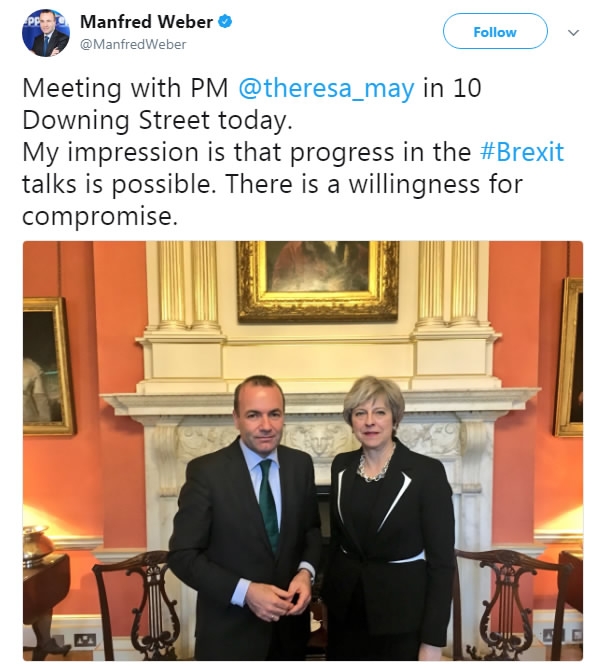
Twitter Screenshot
Twitter Screenshot
On Wednesday, May met Manfred Weber, a leading lawmaker in the European Parliament and an ally of German Chancellor Angela Merkel, in London, where he expressed confidence that the difficulties in the talks could be overcome.
May and her ministers are stepping up contacts with EU officials, trying to find ways to put pressure on negotiators in Brussels to try to push the talks forward by December, movement businesses say they need to make investment decisions.
8150km
Source(s): Reuters

SITEMAP
Copyright © 2018 CGTN. Beijing ICP prepared NO.16065310-3
Copyright © 2018 CGTN. Beijing ICP prepared NO.16065310-3